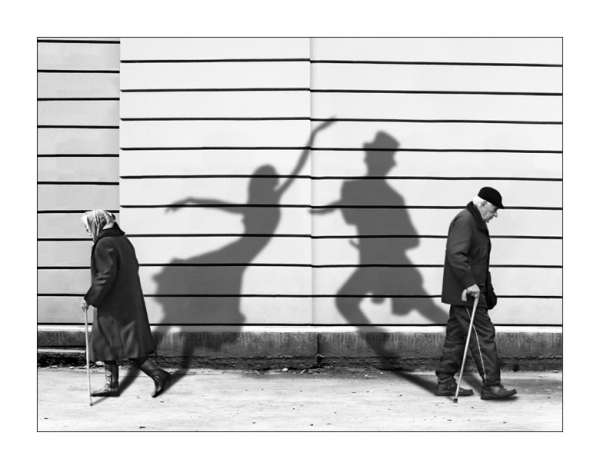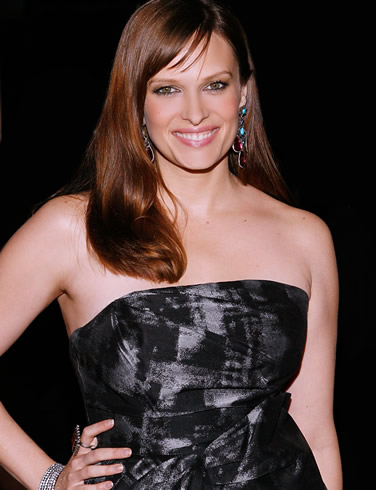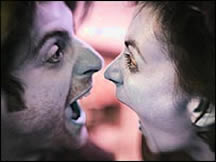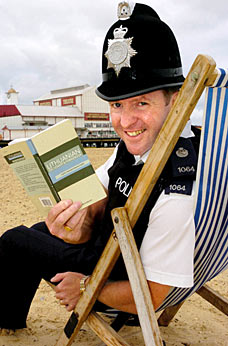
Welcome to the ezine produced by SGI Buddhists that prompts the positive, kindles the constructive, highlights the hopeful and leaves you feeling - well, up!


We all have a shadow self - what Jung called the enemy within - but when we recognise and explore our darker side, as Victoria Hoban discovers, we can also unlock our true potential
 Actress Vinessa Shaw has flirted with Russell Crowe in 3:10 to Yuma, kicked around a soccer ball with Rodney Dangerfield in Lady Bugs, and shared a kiss with Joaquin Phoenix in Two Lovers.
Actress Vinessa Shaw has flirted with Russell Crowe in 3:10 to Yuma, kicked around a soccer ball with Rodney Dangerfield in Lady Bugs, and shared a kiss with Joaquin Phoenix in Two Lovers.
She says Buddhism’s emphasis on compassion is almost a form of method acting - it helps her inhabit and relate to all kinds of characters. In this interview for Interfaith Voices (at 23:48) she reflects on how Nichiren Buddhism has kept her sane in the world of Hollywood.
![]() Having seen that some scientists take a more expansive view of cognition and life as a whole, says Phil Becque, we are now going to move onto some ideas in Buddhism that may illuminate some of the relationships between mind, cognition, consciousness, perception, brain and matter.
Having seen that some scientists take a more expansive view of cognition and life as a whole, says Phil Becque, we are now going to move onto some ideas in Buddhism that may illuminate some of the relationships between mind, cognition, consciousness, perception, brain and matter.
We are going to look at an idea known as the 'Ten Worlds' and a concept known as 'The Nine Consciousnesses' along with the previously mentioned 'Oneness of Body and Mind'. With these under our belt we will be able to understand the subtle interplay of the many different aspects of being human.
And now an amazing dance duo!
 Can Buddhism help you sort out your relationship problems?
Can Buddhism help you sort out your relationship problems?
 Two years ago Gary Pettengell was appointed seafront beat officer in the kiss-me-quick resort of Great Yarmouth. His working day consisted of reuniting lost kids with their parents, checking teenage high spirits and directing holidaymakers in the direction of ice cream, cash machines and toilets.
Two years ago Gary Pettengell was appointed seafront beat officer in the kiss-me-quick resort of Great Yarmouth. His working day consisted of reuniting lost kids with their parents, checking teenage high spirits and directing holidaymakers in the direction of ice cream, cash machines and toilets.
The resort’s long-established Greek Cypriot and Portuguese communities had recently been joined by a group of disorientated new arrivals – Lithuanians. Brought in on dodgy contracts, they were ignorant of British laws - including those regarding employment and health and safety. On top of which most were broke. ‘I remember going into a room to meet a group of fifty and at the sight of the uniform they shrank away and clammed up,’ he says. ‘I thought, no, that isn't how we do policing here.’
 In a world that is opening up at an astonishing speed, schools are recognising the need to equip young people with the skills to contribute to an increasingly global, interdependent society.
In a world that is opening up at an astonishing speed, schools are recognising the need to equip young people with the skills to contribute to an increasingly global, interdependent society.
Yet in a world in which 4 billion people - two thirds of the population - are of faith, can we be sure that young people are equipped to participate as global citizens if they do not understand much about the world's major religions? How can we ensure that a lack of knowledge does not lead to prejudice, antagonism and tension?

